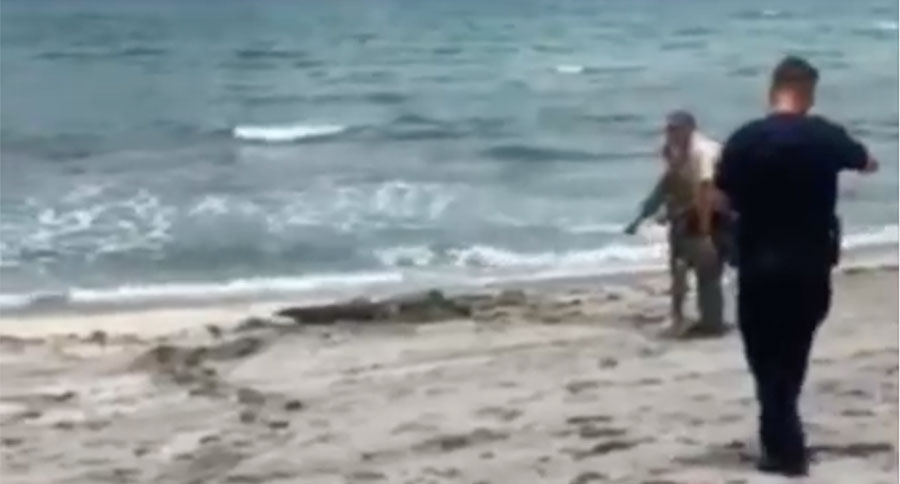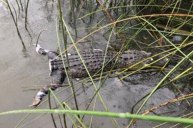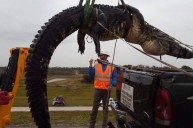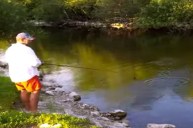It's not a typical "Florida man" news story, but these alligators at the beach will make headlines any day.
Did you know June was alligator mating season?
If you lived near a Florida beach you might be aware, but it seems as though modern technology, cell phone cameras at the ready, and a quickness to gawk at a wild animal has resulted in a busy last few days for wildlife officers.
Two saltwater beaches required Florida Fish and Wildlife presence after reports of alligators led folks to feel a little leery, and for good reason.
The locations, in Jacksonville and Jupiter Island, were busy with weekend beachgoers, and the video evidence of the encounters show the scene the retiles were causing.
Here's one that was shared with a local meteorologist and then posted to Instagram.
https://www.instagram.com/p/ByS6F4AA2IB/
And here's another, from someone at the Jacksonville beach. This video shows a 3-foot alligator being removed. Swimmers reportedly said they saw it in the water and couldn't identify what it was.
? FWC pulled a 3-foot juvenile gator ? from Jacksonville Beach (video provided by Adrielle Plasencia). @wjxt4 pic.twitter.com/6XrVTFjiCz
— Quan Nguyen (@QuanMcwil_TV) June 1, 2019
The Florida Fish and Wildlife Conservation Commission says alligators, found in all 67 state counties, do cause the potential for conflicts, but coexistence is possible, and key to their safety and ours.
They suggest staying far enough away from them if you see them, and don't want anyone approaching or trying to feed an alligator. Swim only in designated areas during the day, and keep pets leashed, say the experts.
Plus, there's a number you can call to report a sighting or problem: 866-FWC-Gator.
The American alligator spent its former years on the endangered species list, but was delisted in 1987. There is an official Florida alligator hunting season with limited tags, but they are protected in the Sunshine State and only able to be taken by folks properly licensed and permitted.
Nuisance gators can be trapped and sold to alligator farms, but if it is more than 4 feet long and a trapper doesn't have the proper permit to take it alive, they're usually killed.
These two that made appearances alongside north and south Florida beachgoers were relocated. Typically freshwater animals, the nature of mating season and an irregularly dry stretch of weather were the main reasons given for their arrival at the beach, a place typically reserved for a healthy dose of shark threats.
I guess Floridians will have a couple different sets of teeth to worry about. You've gotta wonder about the life insurance premiums in that place...
NEXT: 11-FOOT ALLIGATOR SNEAKS INTO FLORIDA HOME
WATCH




